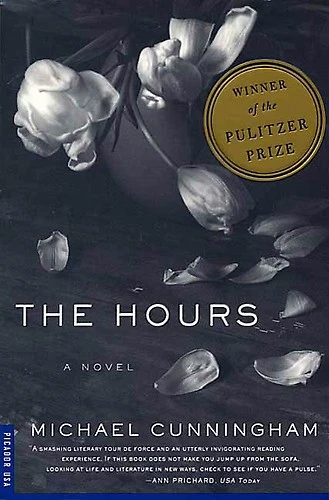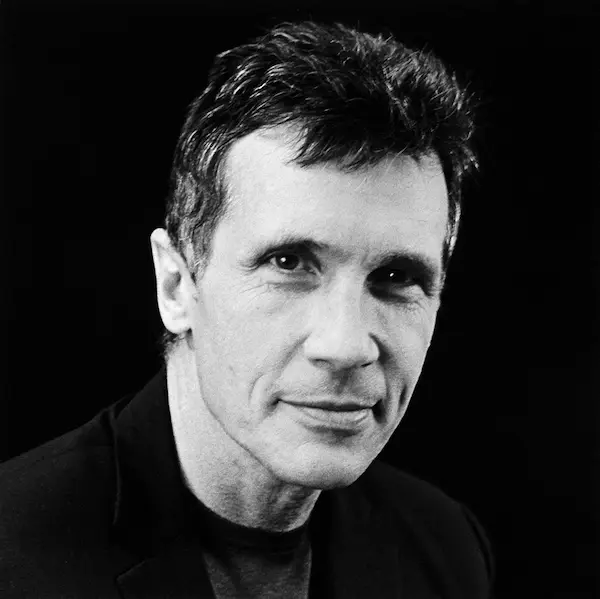It’s always misguided to say that ‘the book was better than the film’ or vice versa. They are works of art in two different media, each with their own criteria for success and excellence. In the case of The Hours by Michael Cunningham (http://www.michaelcunninghamwriter.com/ and https://en.wikipedia.org/wiki/Michael_Cunningham), no false comparison need be made between the novel and the Oscar winning film made from it. Both are excellent.
The Hours (1998) is both a homage to Virginia Woolf and very much its own creature. Even as Michael Cunningham brings his literary idol back to life, he tells her story with those of two more contemporary women. One grey suburban London morning in 1923, Woolf awakens from a dream that will soon lead to the creation of her novel Mrs. Dalloway (reviewed by me here http://sbr.lanark.co.uk/?p=1006). In the present, on a beautiful June day in Greenwich Village, 52-year-old Clarissa Vaughan is planning a party for her oldest love, a poet dying of an AIDS-related illness. And in Los Angeles in 1949, Laura Brown, pregnant and unsettled, does her best to prepare for her husband’s birthday, but can’t seem to stop reading Woolf. These women’s lives are linked both by the 1925 novel and by the few precious moments of possibility each keeps returning to. Clarissa is to eventually realise:
There’s just this for consolation: an hour here or there when our lives seem, against all odds and expectations, to burst open and give us everything we’ve ever imagined … Still, we cherish the city, the morning; we hope, more than anything, for more.
As Cunningham moves between the three women, his transitions are seamless. One early chapter ends with Woolf picking up her pen and composing her first sentence: “Mrs. Dalloway said she would buy the flowers herself.” The next begins with Laura rejoicing over that line and the fictional universe she is about to enter. Clarissa’s day, on the other hand, is a mirror of Mrs. Dalloway’s with, however, an appropriate degree of modern bevelling as Cunningham updates and elaborates his source of inspiration. Clarissa knows that her desire to give her friend the perfect party may seem trivial to many. Yet it seems better to her than shutting down in the face of disaster and despair. Like its literary inspiration, The Hours is a hymn to consciousness and the beauties and losses we all perceive throughout our lives. It is also a reminder that, as Cunningham again and again makes us realise, art belongs to far more than just the world of objects.
Move straight onto the film with Meryl Street, Nicole Kidman, and Julianne Moore (http://www.imdb.com/title/tt0274558/?ref_=nv_sr_1). Surely one of few really intelligent films for grown-ups. It takes one right into the great themes of time and destiny.
Available on DVD at http://www.amazon.co.uk/The-Hours-DVD-Meryl-Streep/dp/B004XBOB8E/ref=pd_cp_14_1?ie=UTF8&refRID=0G0H9E95SBA4PSB8GZYF&dpID=51HS2vM3vrL&dpSrc=sims&preST=_AC_UL70_SR70%2C70_
For Cunningham’s novel enquire at your local library or consult http://www.amazon.co.uk/Hours-Michael-Cunningham/dp/1841150355/ref=sr_1_1?ie=UTF8&qid=1444801807&sr=8-1&keywords=hours+cunningham for full bibliographic detail.
240 pages in Fourth Estate
First published 1998
ISBN 978-1841150352
Michael Cunningham



